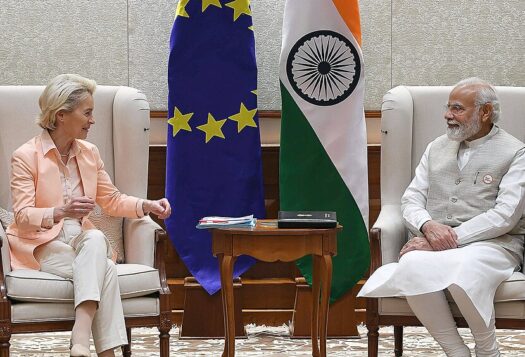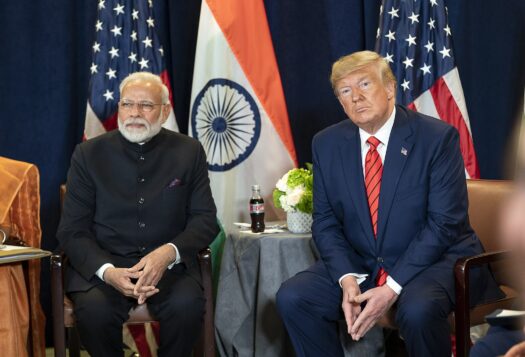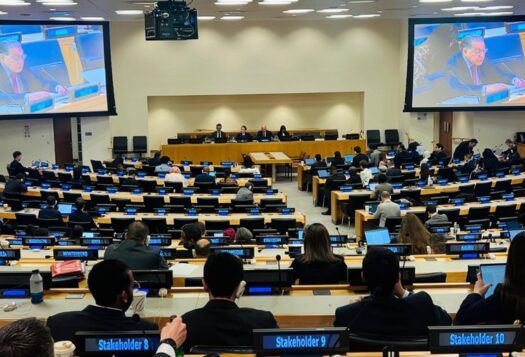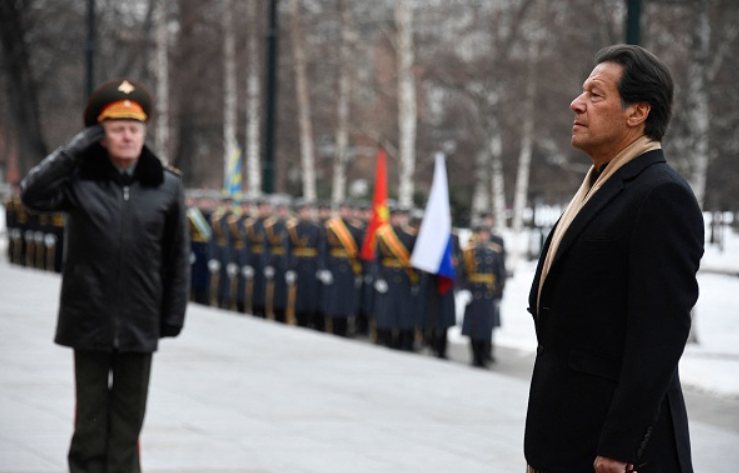
As the recent invasion of Russian forces in Ukraine signaled a shift in global order, countries around the world have difficult diplomatic choices to make. For Pakistan, which wishes to improve its ties with Russia without jeopardizing its relationship with Western powers, the situation is anything but welcoming. Caught between a rock and a hard place, the government announced a neutral stance that would avoid siding with any camp. However, this policy of “no camp politics” is not a response to the Ukraine crisis. Pakistan has already been trying to balance its relationship with the United States and China; Russia and the European Union are just new weights in this balancing game.
Although the policy of neutrality aligns well with the shifting geopolitics of the region and Pakistan’s national interests, the country’s leadership must understand that balancing is not standing still; rather it requires a constant to-and-fro motion. From the Prime Minister’s decision to keep his planned visit to Russia amid growing escalation—which included being present in Moscow on the day of the invasion and holding a long meeting with Putin soon after he declared Russia’s “special military operation” in Ukraine—to abstaining from the United Nations General Assembly (UNGA) resolution to call for withdrawal of Russian forces, most of Islamabad’s recent actions show a tilt towards Moscow rather than a neutral stance. The reasons Pakistani leadership provided to justify these actions also echo Russian rhetoric of blaming the West for its duplicity. A few statements in support of Ukrainian sovereignty and advising Putin to resolve the matter through diplomatic channels are not enough to balance this. Amidst already strained relations with the United States, Pakistan will need a robust scaled up plan to improve its relationship with the Western powers if it truly seeks a neutral position. Vocal support for the West’s stance on Ukraine is a necessary step to display balancing support between great powers.
The Logic of “No Camp Politics”
Pakistan’s current aim to maintain positive ties with all global powers is predominately based on its Cold War experience where its decision to join the U.S. camp estranged it from USSR. For Pakistan, the partnership was also not seen as garnering the desired level of support from the West during its wars with India and for its nuclear program. Pakistan has also raised frustrations over being left alone with the fall-out of Soviet-Afghan War after the country’s full support to the U.S. in its proxy war in Afghanistan and for not getting enough credit for its contribution to the War on Terror. The U.S.-Pakistan relationship has been fraught with mutual frustration and highs and lows, but ultimately, for Pakistan the experience represents the mistake of putting all eggs in Western basket, and the country now wishes to tread more cautiously to ensure a more balanced foreign policy.
…The country’s leadership must understand that balancing is not standing still; rather it requires a constant to-and-fro motion.
The policy of neutrality also agrees with the geopolitical and geoeconomic realities of the region. With India balancing its ties with United States and Russia and Russia moving towards a more balanced relationship with India and Pakistan, Pakistan has the opportunity to improve its relationship with Moscow without cutting ties with Washington. Building stronger ties with Moscow is also of strategic interest to Islamabad, as U.S. support to India’s military and nuclear energy program creates a security dilemma for Pakistan, driving it further towards China and now, Russia. Additionally, although the United States remains Pakistan’s main trading partner, the country’s failing economy requires a broader investment net. Along with the extensive investment under the China-Pakistan Economic Corridor (which now makes up a substantial portion Pakistan’s external debt), Pakistan is seeking economic ties with other regional powers such as Turkey and Russia.
Russia, on the other hand, is also uncomfortable with the U.S.-India nexus and Pakistan can exploit this opportunity to pump life to its failing economy through additional Russian investment. This economic angle of the relationship was emphasized in an interview to Russian Television, in which Prime Minister Imran Khan clarified that the purpose of his visit was bilateral economic relationships and that he desires to trade with all major economic powers without joining any bloc. The Afghanistan situation has also brought Pakistan closer to China and Russia as all share a similar concern with the terrorist organizations operating from Afghan soil. Yet, even with these reasons for leaning towards China especially, Pakistan’s military establishment “fears getting trapped in a cul-de-sac with Beijing” and prefers to keep U.S. interests in the region intact through a more balanced approach.
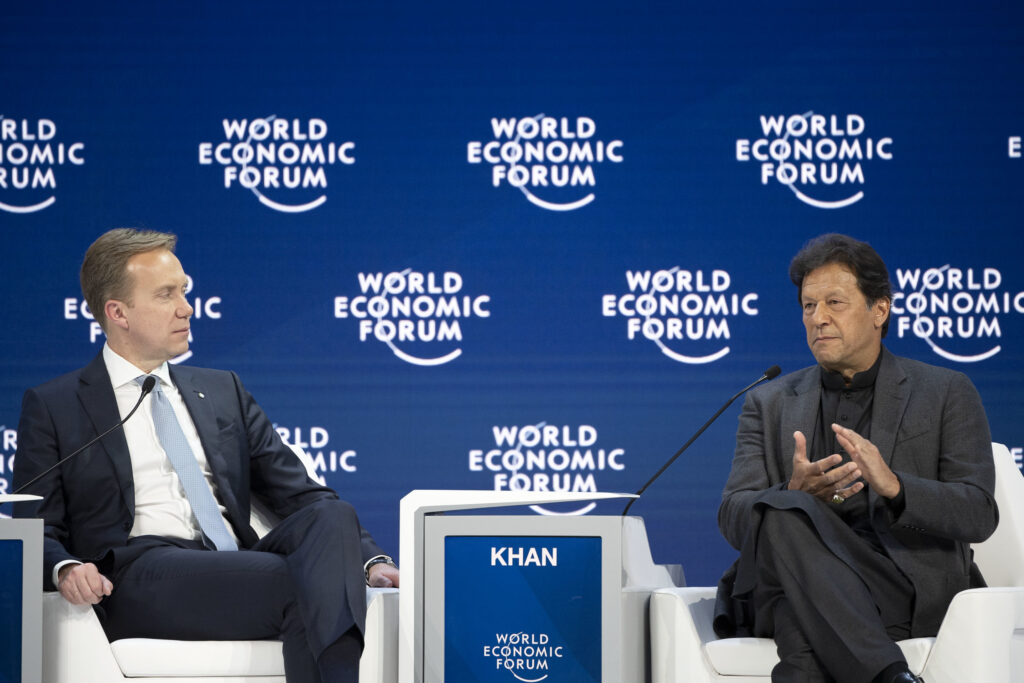
For Pakistan’s geoeconomic interests, neither China nor Russia can replace the United States and the European Union. Not only can Pakistan’s struggling economy not afford the flight of Western capital, but it is also heavily dependent on the support from international financial institutions dominated by these Western powers. A large volume of Pakistani exports goes to the United States (approximately 20 percent of total exports), the European Union (about 28 percent of total exports) and the United Kingdom (around eight percent of total exports) markets. In contrast, China’s share in exports is still below 10 percent while Russian markets absorb close to only one percent of Pakistani exports. More importantly, the Russian military adventure in Ukraine reduces its economic and security appeal. Particularly, the Western sanctions over Russia are likely to further delay the the long-sought investment for Pakistan Stream Gas Pipeline. Hence, the best strategy for Pakistan is to remain in good books of Western powers.
The Tricky Business of Balancing
Although Pakistan’s leadership has been consistently reiterating its policy of neutrality, it has by and large failed in maintaining a neutral stance. The day Russia attacked Ukraine Prime Minister Imran Khan was in Moscow despite clear signs of a possible rise of aggression. The Prime Minister was reportedly warned of the bad timing of the visit, but he decided against postponement, likely fearing that last-minute change of plan of what would be the first visit by a Pakistani Prime Minister in over two decades might anger Putin administration. While the visit could be justified on ground of bilateral interests of Pakistan, the country has since struggled to address the fallout from the visit’s bad optics.
Mistaking no camp politics as a politics of silence and stalemate, the foreign office did not approach Western governments to win back their lost trust. In fact, even when Pakistan was directly approached for support, the government declined to respond. In an extraordinary move, the foreign envoys of 22 countries including predominately European Union countries as well as Japan wrote a joint letter asking Pakistan to condemn the Russian aggression and be more vocal about the founding principles of International Law. After extending some earlier support to the Ukraine’s sovereignty and territorial integrity, Pakistan could have issued a stronger statement against Russian invasion closer to the Western stance, yet it chose to give no response to the letter. As the UNGA passed a resolution denouncing the Russian invasion of Ukraine with 141 votes, Pakistan missed another chance of ensuring West of its neutral stance and chose to be one of the 35 states which abstained from voting.
If [Pakistan] really wants to subscribe to a no camp politics, it is time revive its relationship with the Western powers through a clear stance against Russia’s attack on Ukraine.
Even more problematic is the justification the country’s leadership is providing for Russia-leaning actions. Khan did well while on Russian soil, keeping his talk limited to bilateral relationship and urging all global powers to have greater cooperation. However, upon returning to Pakistan, instead of mitigating the negative impact of his ill-timed visit through open denouncement of Russia’s attack, the Prime Minister has repeatedly reminded West of its double standards in applying international law. He questioned Europe for its prejudiced treatment of India and for their inaction on Kashmir. The Human Rights Minister, in response to the envoy letter, asked the EU to condemn India and Israel before asking Pakistan to condemn Russia. More recently, the Prime Minister has slammed Western envoys for writing the letter, telling them Pakistan is not their “slave.” Such rhetoric resonates with Putin’s criticism of Western duplicity to build ground for launching attack and is in no way neutral.
The challenge for Pakistan is to improve its relationship with Russia, maintain its ties with China, and not alienate itself from the United States. Pakistan must realize that its recent action and oratory is pushing it towards the Sino-Russian camp. If it really wants to subscribe to a no camp politics, it is time revive its relationship with the Western powers through a clear stance against Russia’s attack on Ukraine. Unlike Islamabad’s perception that such a stance would enslave it to Western policies, condemning the invasion on the grounds of its support to Ukraine’s territorial integrity would help elevate its diplomatic position in the world and would bring it back a balanced position from which its recent action has tilted it away.
***
Image 1: ALEXANDER NEMENOV/POOL/AFP via Getty Images
Image 2: World Economic Forum via Flickr
